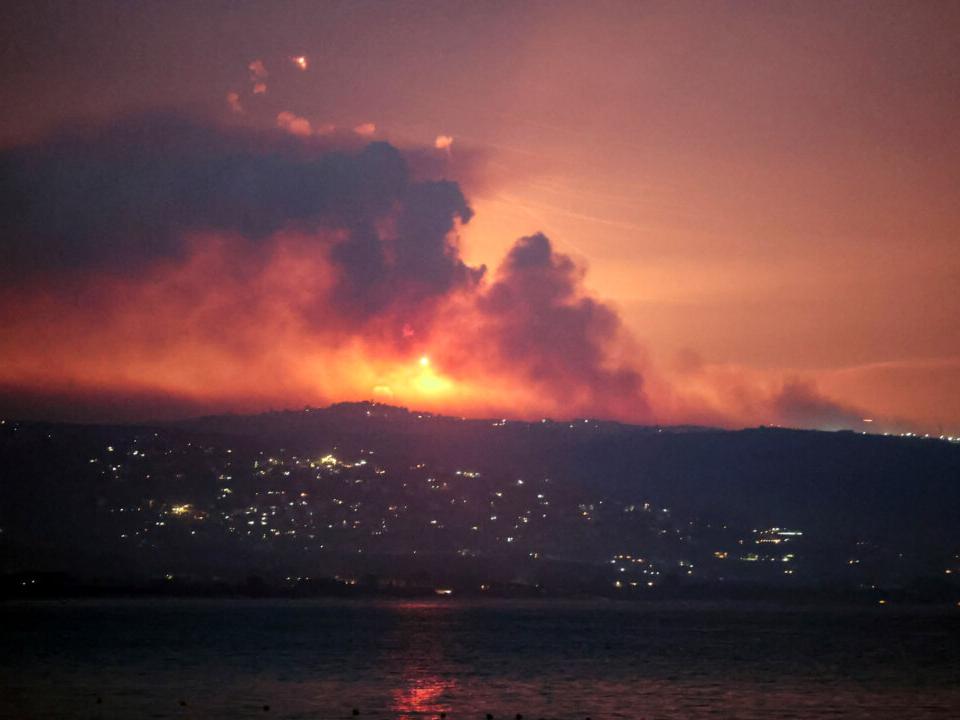On August 25, 2024, the Lebanon-based militant group Hezbollah launched a massive rocket and drone attack against Israel, marking a significant escalation in regional tensions. The assault, involving over 320 rockets and numerous drones, was described by Hezbollah as retaliation for the assassination of its senior military commander, Fuad Shukr, by Israel last month.Hezbollah claimed to have targeted 11 Israeli military sites, including the ‘Nafah’ and ‘Ein Zivan’ bases, and the ‘Meron’ airbase. The group’s leader, Hassan Nasrallah, stated that the attack was specifically aimed at military targets, not civilians. However, reports on the extent of damage and casualties varied, with Israel confirming one soldier killed and two injured.In response, Israel launched a massive counteroffensive. Prime Minister Benjamin Netanyahu announced that Israel had detected Hezbollah’s preparations and ordered a preemptive strike. The Israeli Air Force deployed approximately 100 fighter jets, claiming to have destroyed thousands of Hezbollah’s rocket launchers and targeted over 40 areas in Lebanon.The conflict has led to heightened security measures in Israel, including a 48-hour nationwide state of emergency and the temporary closure of Ben Gurion Airport. The United States has expressed support for Israel’s right to defend itself, while urging for regional stability.This exchange marks one of the largest confrontations between Israel and Hezbollah since 2006. Both sides have issued warnings of potential further action, with Netanyahu stating, ‘This is not the end of the story,’ and Nasrallah hinting at a possible ‘second phase’ of retaliation.The incident has raised concerns about a potential wider regional conflict, with implications for ongoing ceasefire negotiations in Gaza and the overall stability of the Middle East.
Key points
- Hezbollah launched a massive rocket and drone attack on Israel, claiming retaliation for the assassination of commander Fuad Shukr.
- Israel claims to have launched a preemptive strike, destroying thousands of Hezbollah’s rocket launchers.
- The exchange has led to heightened security measures in Israel and concerns about potential regional escalation.
Contradictions👾There are conflicting claims about the success of the attacks, with Hezbollah stating their operation was successful, while Israel claims to have thwarted much of the assault.
👾Reports on the number of rockets fired by Hezbollah vary, with some sources citing 320 and others mentioning different figures.



